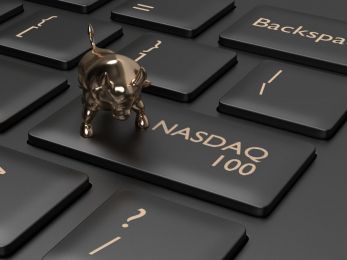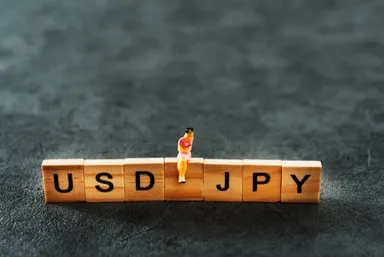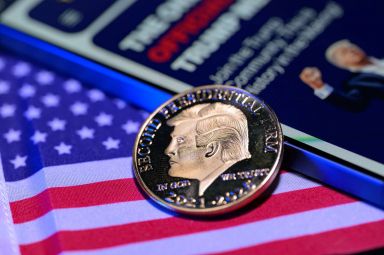Featured articles

DAX 40 continues to push to new highs
The DAX 40 sees six consecutive days of gains as the index pushes to new highs driven by risk-on sentiment
09:54, 12 January 2026

From Caracas to Wall Street: how the U.S.–Venezuela crisis could move markets
The start of the new year has marked a dramatic escalation in the United States’ confrontation with Venezuela.
08:53, 9 January 2026

Intel stock split: what it means for traders
Intel’s long history of stock splits reflects the company’s evolution through several major technology cycles, from early PC growth to data-centric expansion. With its most recent split taking place more than two decades ago, questions often arise about whether Intel may adjust its share structure again.
15:49, 19 December 2025

Vossloh stock forecast: Third-party price targets
Vossloh is a Germany-based rail infrastructure company listed in Frankfurt, supplying rail fastening systems, switches and related services to rail networks worldwide. Explore third-party VOS price targets and technical analysis.
an hour ago

Rheinmetall stock forecast: Third-party price targets
Rheinmetall is a German defence and industrial technology group listed in Frankfurt, with activities spanning military vehicles, weapons systems, ammunition and related services, operating across Europe and beyond. Explore third-party RHM price targets and technical analysis.
2 hours ago

Viking Therapeutics stock forecast: Third-party price targets
Viking Therapeutics is a US-listed clinical-stage biotechnology company whose share price reflects developments in its drug pipeline, company disclosures and wider conditions in the biotech sector. Explore third-party VKTX price targets and technical analysis.
2 hours ago

Him & Hers Health stock forecast: Third-party price targets
Hims & Hers Health is a US-based digital healthcare company offering subscription-led telehealth services, with its shares attracting attention from traders tracking growth, valuation and volatility. Explore third-party HIMS price targets and technical analysis.
2 hours ago

Market Mondays: Volatility Dominates as Precious Metals Lead the Narrative
Markets trade with caution after the recent volatility as traders await the latest employment and inflation data from the US.
11:36, 9 February 2026

Markets enter a correction phase as volatility rises and geopolitical risks re-emerge
Markets selloff across the board as investors de-risk and balance their portfolios heading into the weekend
11:58, 30 January 2026

Week Ahead: Markets seek confirmation as policy, earnings and geopolitics converge
Central banks meetings, earnings and geopolitics in focus next week as markets test the soft-landing narrative
10:52, 23 January 2026

US100 forecast: Third-party targets
The US Tech 100 reflects the performance of some of the largest non-financial companies listed on the Nasdaq and is often used as a reference point for movements in the US technology sector.
16:11, 19 January 2026

Market Mondays: Volatility Dominates as Precious Metals Lead the Narrative
Markets trade with caution after the recent volatility as traders await the latest employment and inflation data from the US.
11:36, 9 February 2026

Are oil markets underestimating escalation risks between Iran and the US?
Oil markets have remained slightly subdued in recent weeks despite the rising tensions between the US and Iran.
12:13, 4 February 2026

Trading Silver’s 35% Pullback
Volatile technical overview has given conformist breakout strategies the clear edge as of late, while in sentiment it remains a majority buy story.
09:06, 2 February 2026

Markets enter a correction phase as volatility rises and geopolitical risks re-emerge
Markets selloff across the board as investors de-risk and balance their portfolios heading into the weekend
11:58, 30 January 2026

United States interest rate forecast: Third-party predictions
As the Federal Reserve adjusts policy, where might US interest rates be in five years?
an hour ago

NOK/PLN forecast: Third-party price targets
Norwegian krona Polish zloty (NOK/PLN) is a foreign exchange cross that compares Norway’s krone with Poland’s zloty, reflecting relative economic conditions and monetary policy in both countries.
an hour ago

Euro Lira forecast
The euro Turkish lira is a forex pair that tracks the euro against Turkey’s currency, often influenced by inflation trends, central bank policy and broader global market conditions. Explore third-party EUR/TRY forecasts and technical analysis.
an hour ago

USD/JPY Under Pressure: dollar weakness meets yen intervention fears
Dollar weakness and intervention fears in Japan drive USD/JPY lower as key US data is to be released.
10:29, 11 February 2026

Dogecoin price prediction: Third-party outlook
Dogecoin (DOGE) is a cryptocurrency traded across global markets, with prices influenced by broader crypto conditions, liquidity and technical indicators. Explore third-party DOGE price targets and technical analysis.
13:17, 10 February 2026

Cardano price prediction: Third-party outlook
Cardano (ADA) is a blockchain-based cryptocurrency traded globally, with its price influenced by network developments, market sentiment, and wider conditions across the digital asset sector. Explore third-party ADA price targets and technical analysis.
13:10, 10 February 2026

TRON price prediction: Third-party outlook
TRON (TRX) is a cryptocurrency that runs on the TRON blockchain, a decentralised network focused on digital content distribution and blockchain-based applications. Explore third-party TRX price targets and technical analysis.
12:40, 10 February 2026

Trump coin price prediction: Third-party outlook
Trump coin (TRUMP) is a cryptocurrency token built on the Solana blockchain, launched in January 2025 and linked to President Donald Trump’s public profile and digital branding. Explore third-party TRUMP price targets and technical analysis.
17:09, 2 February 2026
